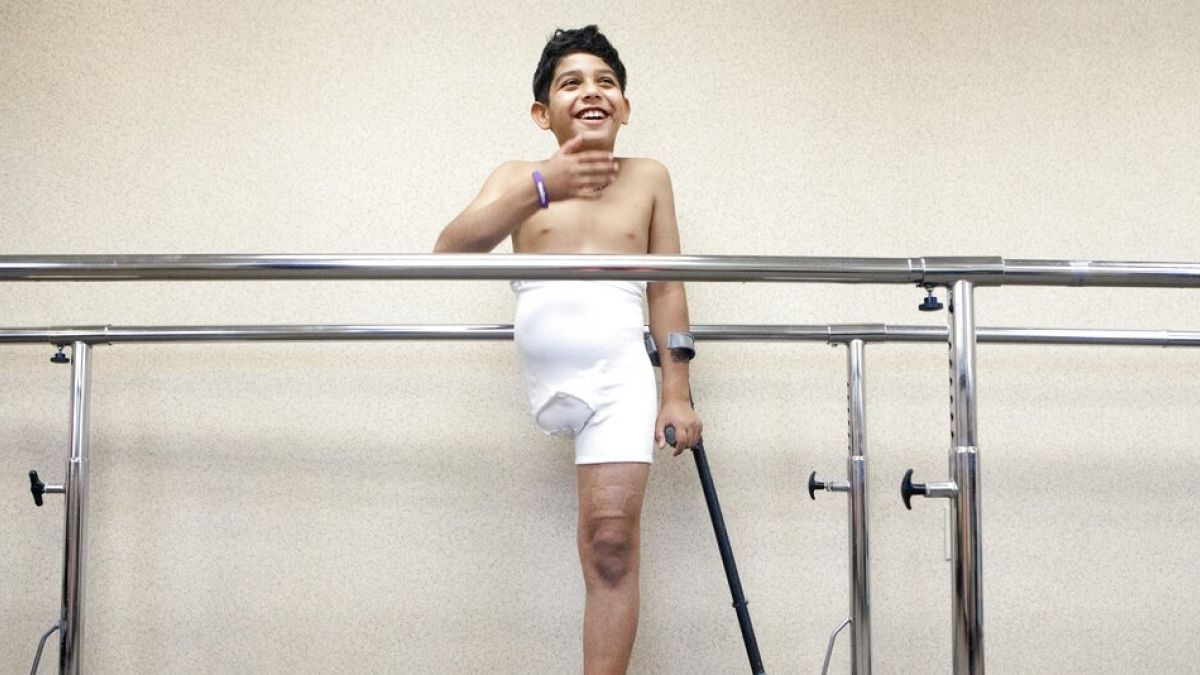The US is expected to send Kyiv more cluster bombs on Friday. These munitions are decades old, scatter over a wide area and could remain deadly for years, claims the NGO.
Both Ukraine and Russia have been urged to stop using devastating cluster bombs by Human Rights Watch (HRW).
Research by the US-based NGO found that Ukrainian attacks on Russian-controlled areas in and around Izium using cluster munition rockets caused many casualties among Ukrainian civilians in 2022.
Russian forces have also used them extensively, killing many non-combatants and causing serious harm.
The widely banned weapons are notorious for maiming and killing civilians years after a conflict, often spreading over a large area and lying dormant until they come into contact with people.
Washington is expected to send Kyiv more cluster munitions on Friday.
The specific weapons are more than 20 years old, scatter over a wide area, and have a notoriously high failure rate, meaning they could remain deadly for years.
Supporters of the US move say cluster munitions are an attractive option because they would help Ukraine destroy more targets with fewer rounds.
When HRW visited the eastern Ukrainian city of Izium last year, its investigators found that cluster bombs used by Kyiv had killed at least eight civilians and wounded 15 more.
One ambulance driver told the NGO he and his colleagues transported and treated at least one child injured by cluster munitions every day.
The total number of civilian casualties is likely to be much greater than reported, according to HRW. Almost half of the people interviewed for the research said fragments from cluster submunitions had detonated around their homes during the Russian occupation.
A man from the village of Hlynske told HRW that in May 2022 he heard a cluster munition rocket strike near his home.
“Suddenly I heard my father screaming, ‘I’ve been hit! I can’t move,’” he said. “I ran back and saw that he had fallen on his knees but couldn’t move from the waist down, and there were many metal pieces in him, including one sticking out of his spine and another in his chest. He had these small metal pellets lodged in his hands and legs.”
His father reportedly died a month later after undergoing surgery.
Kyiv has publicly requested cluster bombs, and its request has received the support from several US lawmakers.
Their use in US combat operations in 1991 and 2003 in Iraq resulted in casualties among US military personnel and civilians.
An international convention banning the use of cluster bombs has been joined by more than 120 countries, which agreed not to use, produce, transfer or stockpile the weapons and to clear them after they’ve been used.
But the US, Russia and Ukraine haven’t signed the agreement.
“Cluster munitions used by Russia and Ukraine are killing civilians now and will continue to do so for many years,” said Mary Wareham, acting arms director at Human Rights Watch.
“Both sides should immediately stop using them and not try to get more of these indiscriminate weapons.”
